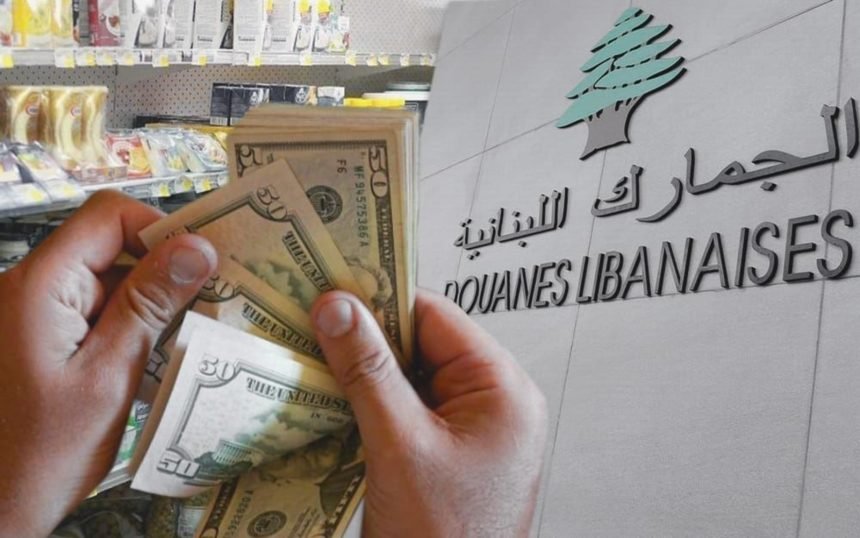The Lebanese government decided to raise the exchange rate used for calculating the price of imported goods for customs purposes, commonly known as the “customs dollar”. The rate has surged from 60,000 Lebanese pounds (LBP) to the US dollar to a staggering 86,000 pounds, marking the fourth increase in the past year in a desperate attempt to counter the relentless devaluation of the national currency. Under the revised calculation, the value-added tax imposed on imported goods is now based on the 86,000 LBP to USD rate as well. The exchange rate is established on the Sayrafa platform—an electronic exchange platform utilized by the central bank. This move aims to generate additional revenue to finance public sector salary increases. LIMS pointed out that this development has raised concerns over the imminent surge in prices of imported goods. The extent of the price increase will largely depend on the specific customs rate applied to each item, with goods subjected to a 10% rate projected to witness a modest rise, while those subjected to a 50% rate are anticipated to bear a more substantial burden. This predicament has cast a long shadow over various productive sectors, most notably commerce and tourism, which heavily rely on imported goods.
LIMS added that augmenting customs rates and taxes only applies to law-abiding companies that dutifully declare their imported goods. This situation would inadvertently confer an unfair advantage to illegal entities engaged in customs evasion and smuggling. Consequently, this disparity impedes the ability of legitimate enterprises to effectively compete, ultimately driving them towards closure or prompting them to resort to tariff and tax evasion themselves. As a result, the “customs dollar” adjustment will have far-reaching consequences on unemployment and overall economic output, failing to generate the anticipated revenues required to fund the promised salary increases. This revenue shortfall will inevitably force the government to further rely on borrowing from Lebanon’s central bank, Banque du Liban, thereby compounding the financial losses of the central bank and exacerbating the already dire banking and currency crisis.
Suggesting a viable solution, LIMS advocates for the establishment of a flat customs tariff. As an example, a fixed low rate of 2% could be implemented without exceptions or exemptions, thereby offsetting the adverse effects of customs exchange rate hikes. Such a reform would serve as a deterrent to customs evasion, fostering fair competition among businesses and ensuring a level playing field for all actors in the marketplace.
- The Customs Dollar At The Price Of 86,000 Lebanese Pounds Entered Into Force, What Are The Repercussions And Reasons? May 13, 2023: VDL, TV Interview AR
- The VAT Dollar Rises 6 Times! May 15, 2023: SBI, TV Interview AR
- To Reduce Smuggling And Evasion… Reform Of The Customs System Is Urgently Required! May 16, 2023: Al Markazia, Article AR
- How Can The State Generate More Revenue Without Taxing Citizens? May 19, 2023: This Is Lebanon, Article AR
- What Is The Effect Of Raising The Customs Dollar On The Economic Movement In The Country And Increasing The Unemployment Rate? May 22, 2023: VDL, TV Interview AR
- The Control Of Illegal Companies In Lebanon…And The Dollar To An Unprecedented Rise, May 25, 2023: LebnanNews, Article AR
- Drowning in More Debt: Lebanon Will Receive 300 Million Dollars From IMF, May 27, 2023: Realist Arabic, Article AR
- Zero Benefits In The Budget: A Disaster That Will Deepen The Economic Crisis, May 30, 2023: This is Lebanon, Article AR

